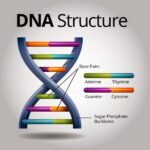The proposition of a national DNA registry, encompassing the genetic blueprints of an entire citizenry, presents a tempting solution to various societal challenges. Its proponents often highlight its potential to revolutionize criminal investigations, expedite missing persons cases, and even personalize medical treatments. However, a closer examination reveals a Pandora’s Box of ethical, legal, and practical concerns that warrant a cautious and critical approach. The alluring promise of enhanced security and healthcare must be weighed against the inherent risks to individual liberties and the potential for misuse.
One of the most significant objections to a national DNA database lies in the profound implications for privacy. Such a registry, by its very nature, necessitates the collection and storage of highly sensitive personal information. DNA reveals not only an individual’s predisposition to certain diseases but also familial relationships and potentially even behavioral traits. The aggregation of this data into a centralized repository creates an irresistible target for hackers, state actors, and even rogue employees. A breach could expose citizens to discrimination, blackmail, or identity theft on an unprecedented scale. Consider the chilling effect such vulnerability would have on free expression and association. Would individuals be less likely to participate in controversial protests or engage in dissenting opinions if they knew their genetic information was accessible to the government or malicious third parties?
Moreover, the potential for mission creep is a genuine concern. Initially justified as a tool for law enforcement, a national DNA database could easily expand to include other purposes, such as tracking immigrants, identifying individuals with genetic predispositions to certain conditions, or even pre-determining eligibility for insurance or employment. The slippery slope argument, often dismissed as hyperbolic, gains considerable weight in the context of such a powerful and easily abused technology. The history of surveillance technologies is replete with examples of initial limitations being gradually eroded over time, often under the guise of national security or public safety.
The issue of consent raises further ethical quandaries. How can informed consent be obtained from every citizen, particularly vulnerable populations such as children, the elderly, and those with cognitive impairments? The implementation of a national registry could effectively coerce participation, especially if access to essential services or benefits is contingent upon providing a DNA sample. The specter of genetic discrimination, where individuals are judged and treated differently based on their genetic makeup, looms large in such a scenario.
Beyond the ethical and legal considerations, the practical feasibility of a national DNA registry is also questionable. The sheer scale of the undertaking would require a massive investment in infrastructure, personnel, and security measures. Ensuring the accuracy and integrity of the data would be a constant challenge, as errors in collection, storage, or analysis could have devastating consequences for individuals wrongly implicated in crimes or denied access to vital services. The cost-benefit analysis must also account for the potential for false positives and the burden on the legal system of adjudicating cases based on genetic evidence.
Another critical aspect to consider is the exacerbation of existing societal inequalities. A national DNA registry could disproportionately affect marginalized communities, who are already subject to higher levels of surveillance and discrimination. Law enforcement practices that rely on genetic profiling could perpetuate biases and reinforce stereotypes, leading to wrongful arrests and convictions. Imagine a scenario where individuals from certain ethnic or racial groups are unfairly targeted based on perceived genetic predispositions to criminal behavior. The potential for such abuse is a stark reminder of the importance of ensuring fairness and equity in the application of any technology, particularly one as intrusive as a national DNA database.
The legal and regulatory framework surrounding the collection, storage, and use of genetic information is often inadequate and inconsistent. Existing laws may not be sufficient to protect individuals from the potential abuses of a national DNA registry. Clear and comprehensive legislation is needed to address issues such as data security, access control, and the permissible uses of genetic information. International cooperation is also essential to prevent cross-border data breaches and ensure that individuals are protected regardless of their citizenship or residency. The lack of a robust legal framework creates a significant risk that a national DNA registry could be used to violate fundamental human rights.
Furthermore, the very concept of genetic exceptionalism, the notion that DNA is somehow different from other forms of personal information, deserves scrutiny. While DNA is undoubtedly a unique and powerful identifier, it is not inherently more sensitive or deserving of protection than other types of data, such as medical records or financial information. The focus should be on the potential for harm, regardless of the nature of the data. A balanced and nuanced approach is needed to ensure that privacy protections are tailored to the specific risks associated with each type of information.
In conclusion, the establishment of a national DNA registry presents a complex and multifaceted challenge. While the potential benefits in terms of law enforcement and healthcare are undeniable, the risks to individual liberties, privacy, and social justice are equally significant. A thorough and transparent public debate is essential to ensure that all stakeholders are aware of the potential consequences of such a profound technological intervention. Only through careful consideration and robust safeguards can we hope to harness the power of genetics without sacrificing our fundamental values.









Leave a Comment